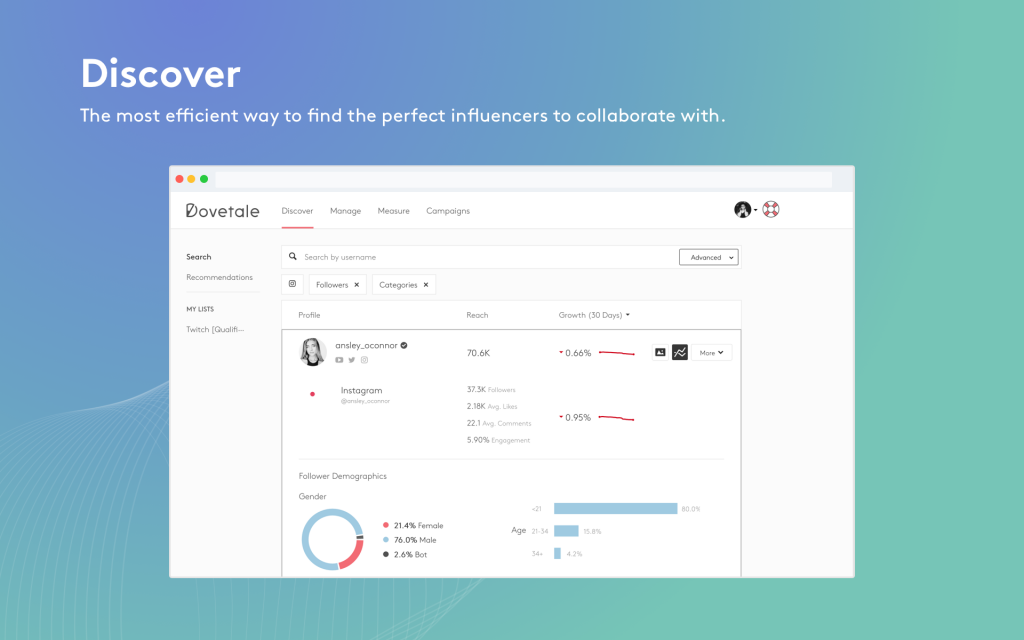Today, Dovetale launched a recommendations engine that allows brands to find influencers based on image recognition and machine learning.
While Dovetale — which provides a suite of tools for influencer marketing — is based in New York, its founder, Mike Schmidt, is a Toronto native. Schmidt is a Next 36 alumni and the former CEO of Listn, which allowed users to collect music from all of their streaming services and share it with their friends. Listn was acquired by SFX Entertainment by 2014, and at the time, the app reportedly had over 400,000 users.
The Dovetale team says that its recommendations engine was inspired by mood boards and advertising. Brand managers can upload images that match the look they’re going for — such as black and white photography or images related to specific interests — and Dovetale will run the images through its platform and return a list of qualified influencers that match. Brands can search for influencers through YouTube, Instagram, Twitch, and Twitter.
“Our recommendations engine is just one aspect of our platform that gives brands and agencies a whole new way of creating or enhancing their influencer strategies,” said Schmidt. “Influencer marketing is at a standstill – the marketplace platforms that exist are not targeted and optimized to help brands succeed. We have developed a true technology platform that brings back the strategy, accountability and trust in influencer marketing.”

Dovetale’s other features include the ability to find creators by entering specific keywords and social metrics, which returns the influencer’s channel growth, audience location, social stats, and demographics; a management system for influencers that brands work with; performance reports; and payments processing.
In the past, influencer marketing has been criticized for a lack of disclosure on paid messaging. In 2016, Advertising Standards Canada announced a new set of rules that stated that every influencer must make their connection to brands clear. However, the ASC doesn’t have the ability to issue fines.
Schmidt indicated, however, that the role of influencers is changing, and that many agencies are relying on them as creative directors. He also said that brands are becoming more sophisticated in how they deal with influencers, and it’s now evolved to automating the time it takes to find and pay them.
“They [influencers] and their teams help brands as much as the brands help them. Real relationships catalyze growth in influencer marketing, not one-off deals,” Schmidt said. “Eventually, influencers will be a part of every brand strategy no matter how big the company is — from small Shopify stores to large fashion retailers. Deception comes from people in the industry that take advantage of this type of marketing. Really, the opportunity comes from providing a service that is trusted because of complete transparency between us and our customers.”
While the team is not currently hiring in Canada, Schmidt said it’s on the company’s “to-do list.”


